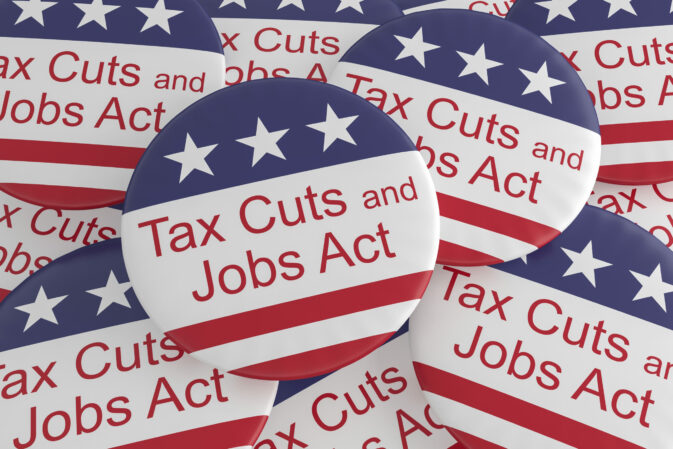Year-end congressional action should make small business tax cuts permanent

Americans are busy preparing for the holiday season, and some in Congress are trying to take advantage of our distraction by passing a massive year-end “omnibus” spending bill. The Wall Street Journal reports that this bill would boost federal spending by $150 billion above already elevated pandemic-era levels and increase earmarks and pet projects across the country. The Heritage Foundation projects the legislation may exceed the $1.9 trillion price tag of the American Rescue Plan.
Have legislators learned nothing from the ongoing historic inflation causing a cost-of-living crisis for many Americans? On Tuesday, the Labor Department revealed that the Consumer Price Index rose by 7.1 percent over the past 12 months, hovering near a 40-year high. For 20 straight months, inflation has grown faster than wages on an annualized basis, meaning Americans’ living standards are declining.
Inflation is an even bigger problem for small businesses. Wholesale costs rose by 7.4 percent over the last year. Some inputs have increased at many multiples of that topline rate, putting pressure on already-slim margins.
Additional reckless spending will only add to inflationary pressures by injecting more dollars into the economy, devaluing the currency already in existence, and bidding up prices. The inflation threat is even bigger if the omnibus legislation includes the reinstatement of the expanded, refundable child-tax credit as some policymakers wish. This monthly payout to families would cost $1.4 trillion and further depress labor force participation by essentially paying people not to work.
Fiscally responsible members of Congress should reject a bloated, inflationary omnibus bill in favor of commonsense, compromise legislation that keeps the government funded. If they can hold the line on reckless spending this month, their task will get easier next month when a new, divided Congress takes over.
However, there is one policy that all legislators should prioritize as part of any year-end legislation: making the Tax Cuts and Jobs Act permanent. Passed at the end of 2017, these tax cuts leveled the playing field between small and big businesses and ushered in historic shared economic prosperity before the pandemic struck.
The tax cuts allow small businesses to deduct 20 percent of revenues, enabling them to reinvest earnings into productive activities such as hiring, expansion and employee wage hikes. Another provision allows small businesses to immediately deduct all business expenses, encouraging investment and growth.
The Rabine Group, for example, used the tax cut savings to deliver 50 percent higher raises and bonuses for teammates and 100 percent larger donations to nonprofits. It was able to create more than 20 jobs, from entry-level positions to management. It significantly increased research and development spending and launched two startups that had been on the back burner and suddenly became economical thanks to the tax cuts.
This experience was representative. And since small businesses drive the economy, these tax cuts also boosted economic opportunity for all — especially for those who needed it most. In 2019, real median incomes rose7.9 percent for Black households, 7.1 percent for Hispanics, and 5.7 percent for whites. Wages grew 79 percent faster for Black people and 24 percent faster for Hispanics than during President Obama’s second term. That’s a stark contrast to the declining real wages workers are experiencing today.
Unfortunately, without congressional action, the Tax Cuts and Jobs Act expires after 2025, and the immediate expensing provision begins phasing out next year. Small businesses make hiring and expansion plans years in advance, so they need certainty about future tax liabilities now.
Congress can provide small businesses with some tax certainty during this uncertain time, jumpstart the economy, and tame historic inflation by shelving their omnibus spending plans in favor of making small business tax cuts permanent.
Gary Rabine is the founder andCEO of the Rabine Group in Illinois and a member of the Job Creators Network, where Alfredo Ortiz is president and CEO.





